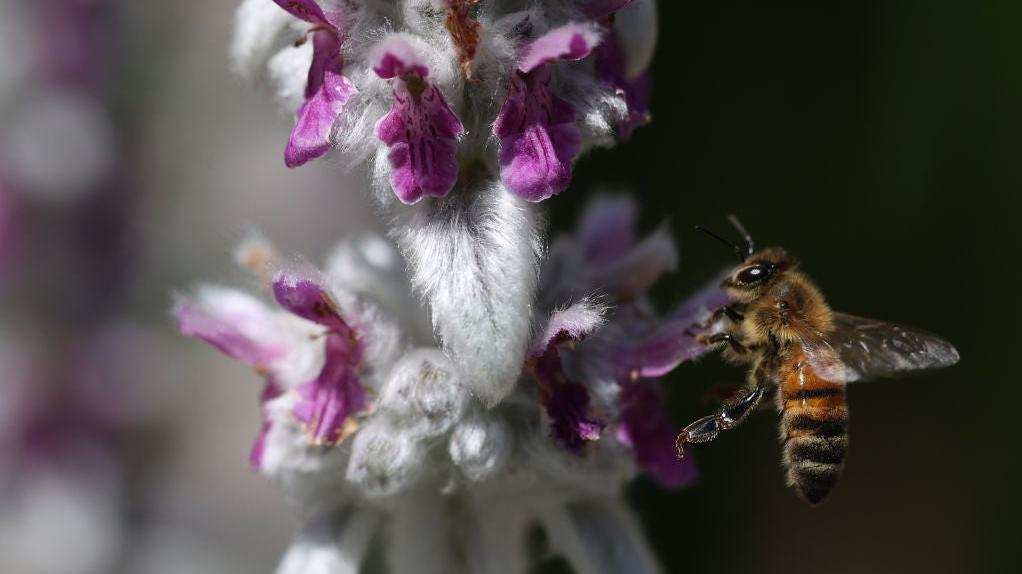Bees Are Little Caffeine Fiends Just Like Us
Scientists fed commercially raised bees a bit of caffeine to improve their productivity. It worked.
A reasonable amount of caffeine helps propel me through my daily grind, boosting my mood and productivity. (An unreasonable amount of caffeine, meanwhile, turns me into a teeth-chattering luchador, sprinting through my apartment until I collapse and take a four-hour nap.) Turns out that we humans aren't alone in our caffeine habit: bees benefit from a little buzz, too, per a recent Scientific American article.
The article explains that farmers often release "commercially reared bees" by the thousands to help pollinate crops. But these commercial bees sometimes get distracted, straying from their assigned fields to check out a tasty wildflower, for example. In an effort to keep bees on task, ecologist Sarah Arnold organized a study comparing caffeinated bees' productivity to that of non-caffeinated bees—and the caffeinated bees won.
Scientific American explains that the study worked thusly: first, Arnold and her team set up three groups of bumblebees. They fed the first group caffeinated sugar water and blasted the bees with a strong "strawberry-flower odor." The second group got plain sugar water and the odor, but no caffeine. A third group got just the plain sugar water, with no caffeine and no odor. The groups were then released into a laboratory arena dotted with robotic flowers, some of which released the strawberry-flower odor and some of which released a "distractor" scent. The goal was to determine which of the bees were most likely to pollinate the strawberry-scented flowers to which they were artificially "assigned."
As one might expect, the caffeinated bees flocked to the strawberry flowers, with 70.4% visiting the target blossoms right away. Conversely, 60% of the non-caffeinated but odor-primed subjects swung by the strawberry flowers. Finally, the caffeine-free, odor-free bees visited the strawberry flowers a little under half of the time. Why? Because they never "learned" which plants to try in the first place.
With each consecutive flower visit, the caffeinated bees' pace also increased faster than that of the non-caffeinated bees. Ultimately, the experiment shows how caffeine can help "teach" bees which plants to pollinate, which could have a positive impact on industrial agriculture. I will say that the idea of caffeinating little bees to get them to work harder gives me pause. What's next? Forcing them to wear little bee neckties? Setting up a bunch of bee cubicles covered with Dilbert cartoons? Capitalism is weird.
